PARTICIPANTS 2023/24
The application process:
The applications underwent two independent ratings in the first round of the process following a scoring system of 15 different aspects. Nearly 200 applicants were asked in the first round of the process to send us documentation and a detailed project outline. Among them, 30 participants were selected to conduct video conference interviews.
Finally, the ISA team selected the following twelve fellows for the ISA program 2023/24 which we proudly present here:
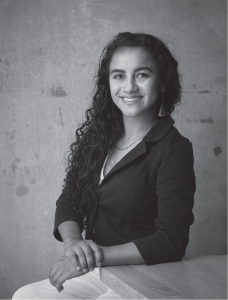 Maria Jose Hernandez from Guatemala. Maria is the co-founder of The BiosferaGT project – a project that contributed to the sanitation of the Las Vacas River in the village of San Antonio las Flores in ChinautlaGuatemala in 2022 by extracting and processing more than 300 tons of inorganic waste, mainly plastic and scrap. Within this project, a plant was built to select, classify, and transform plastics that are received and transforms the waste extracted from the river. With her ISA project, Maria seeks to expand the impact of BiosferaGT by creating a plastic waste collection system in the neighbourhoods of Guatemala City that pollute the river, strengthening scientific research, expanding education coverage, and creating new business models. For the first part of her ISA project, she wants to develop a strategy for identifying and selecting key points that could be recycling centres for common solid waste in the Guatemala department. Furthermore, she aims to create a strategy to exchange incentives for recoverable materials. This will stimulate a culture of separation and delivery of recyclable waste. Lastly, she will use the recovery plastic to manufacture new products at the Biosferagt transformation plant and create value chains for other materials. The second part of her ISA project will be focused on research, specifically, she plans to implement a scientific research program for the management of Polystyrene and other materials. Her project adds to achieving many of the SDGs but mainly, her focus SDGs are 8 – Decent work and economic growth, 9 – Industry, innovation and infrastructure, 11 – sustainable cities and communities, and 12- responsible consumption and production.
Maria Jose Hernandez from Guatemala. Maria is the co-founder of The BiosferaGT project – a project that contributed to the sanitation of the Las Vacas River in the village of San Antonio las Flores in ChinautlaGuatemala in 2022 by extracting and processing more than 300 tons of inorganic waste, mainly plastic and scrap. Within this project, a plant was built to select, classify, and transform plastics that are received and transforms the waste extracted from the river. With her ISA project, Maria seeks to expand the impact of BiosferaGT by creating a plastic waste collection system in the neighbourhoods of Guatemala City that pollute the river, strengthening scientific research, expanding education coverage, and creating new business models. For the first part of her ISA project, she wants to develop a strategy for identifying and selecting key points that could be recycling centres for common solid waste in the Guatemala department. Furthermore, she aims to create a strategy to exchange incentives for recoverable materials. This will stimulate a culture of separation and delivery of recyclable waste. Lastly, she will use the recovery plastic to manufacture new products at the Biosferagt transformation plant and create value chains for other materials. The second part of her ISA project will be focused on research, specifically, she plans to implement a scientific research program for the management of Polystyrene and other materials. Her project adds to achieving many of the SDGs but mainly, her focus SDGs are 8 – Decent work and economic growth, 9 – Industry, innovation and infrastructure, 11 – sustainable cities and communities, and 12- responsible consumption and production.
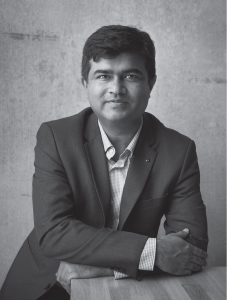 Rajeev Ranjan from India. His project title is Empowering Coal Regions in India Towards Just Energy Transition. The project aims at building a long-term realistic vision of achieving just energy transitions and supporting the climate action goals in the process of a shift away from coal. He intends to develop a Just Transition Toolbox for the communities and regions dependent on fossil fuel (coal) in India. The project will use the case study of Jharkhand, one of the largest coal-producing and dependent regions of India, to provide guidance on the framework required for fair and just transition planning and strategy. The toolbox builds on the ongoing research and dialogue on the need for a socially just and equitable transition process for coal-dependent workers and communities. The project will provide a practical based understanding of the perception of different stakeholders and actors such as formal and informal workers, and coal-dependent communities, in envisioning a just transition. In addition, it will develop the capacities and understanding of people, institutions, and policymakers and examine projects and programs that can support just transitions. Finally, the toolbox will suggest approaches to building strategies and planning for regional transformations. The project addresses Goal 8 – decent work and economic growth, Goal 12 – sustainable consumption and production, and Goal 13 – climate action.
Rajeev Ranjan from India. His project title is Empowering Coal Regions in India Towards Just Energy Transition. The project aims at building a long-term realistic vision of achieving just energy transitions and supporting the climate action goals in the process of a shift away from coal. He intends to develop a Just Transition Toolbox for the communities and regions dependent on fossil fuel (coal) in India. The project will use the case study of Jharkhand, one of the largest coal-producing and dependent regions of India, to provide guidance on the framework required for fair and just transition planning and strategy. The toolbox builds on the ongoing research and dialogue on the need for a socially just and equitable transition process for coal-dependent workers and communities. The project will provide a practical based understanding of the perception of different stakeholders and actors such as formal and informal workers, and coal-dependent communities, in envisioning a just transition. In addition, it will develop the capacities and understanding of people, institutions, and policymakers and examine projects and programs that can support just transitions. Finally, the toolbox will suggest approaches to building strategies and planning for regional transformations. The project addresses Goal 8 – decent work and economic growth, Goal 12 – sustainable consumption and production, and Goal 13 – climate action.
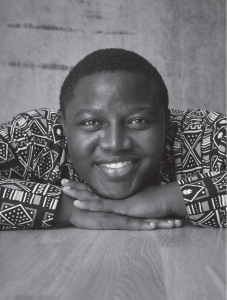 Mohammed Hafiz Musah from Ghana. His project, Sustainability for Women in Agricultural Production (SWAP), is focused on leveraging the power of women to promote food security whiles improving livelihoods. Mohammed intends to help women and youth Soybean farmers in Ghana by exposing them to climate-smart technologies and helping them out through all the supply-value chain steps. His goal is to empower women while at the same time, supporting food security in his country. His team will eventually facilitate the organization of two stakeholder meetings and as result, the following activities will be conducted: farmer mobilization in clusters and organizing cluster stakeholder meetings; training on good agronomic practices (including weather alert services); facilitating farmer access to seed and inoculant; facilitating access to tractor and thresher services; facilitating postharvest management training; planting, spraying, harvesting, and transportation; training of women entrepreneurs in business management and entrepreneurship. This project will be beneficial to achieving SDG 1 – no poverty, SDG 2- zero hunger, SDG 5 – gender equality, and 8 – decent work and economic growth.
Mohammed Hafiz Musah from Ghana. His project, Sustainability for Women in Agricultural Production (SWAP), is focused on leveraging the power of women to promote food security whiles improving livelihoods. Mohammed intends to help women and youth Soybean farmers in Ghana by exposing them to climate-smart technologies and helping them out through all the supply-value chain steps. His goal is to empower women while at the same time, supporting food security in his country. His team will eventually facilitate the organization of two stakeholder meetings and as result, the following activities will be conducted: farmer mobilization in clusters and organizing cluster stakeholder meetings; training on good agronomic practices (including weather alert services); facilitating farmer access to seed and inoculant; facilitating access to tractor and thresher services; facilitating postharvest management training; planting, spraying, harvesting, and transportation; training of women entrepreneurs in business management and entrepreneurship. This project will be beneficial to achieving SDG 1 – no poverty, SDG 2- zero hunger, SDG 5 – gender equality, and 8 – decent work and economic growth.
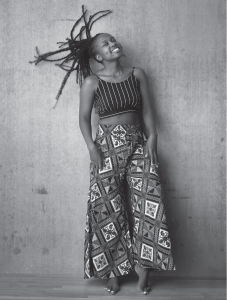 Freda Mawia Mutune from Kenya. Her Start-Up PsychX provides a user-friendly and interactive platform to access mental health services either virtually or physically. She is keen to beat the stigma around mental health in Africa by bridging the gap which exists regarding awareness, access, and cost of mental health services. PsychX is a client-therapist matchmaking platform where a client gets an opportunity to choose a therapist who suits their preferences and needs. The simple interface collects some essential information and then uses an algorithm to match the client with the most suitable therapist. Furthermore, she intends to create a recreational-based physical space where people can come to see their therapists in the most convenient and unique physical space to enhance mental wellbeing services. Freda wants to see a world where everyone has the right to express themselves and how they feel and be able to seek mental health services without fear of being judged or discriminated against and that is why she dedicated her project to mental health awareness and access. With her project, she is addressing SDG 3 – good health and well-being, SDG 1 – no poverty and SDG 10 – reduced inequalities.
Freda Mawia Mutune from Kenya. Her Start-Up PsychX provides a user-friendly and interactive platform to access mental health services either virtually or physically. She is keen to beat the stigma around mental health in Africa by bridging the gap which exists regarding awareness, access, and cost of mental health services. PsychX is a client-therapist matchmaking platform where a client gets an opportunity to choose a therapist who suits their preferences and needs. The simple interface collects some essential information and then uses an algorithm to match the client with the most suitable therapist. Furthermore, she intends to create a recreational-based physical space where people can come to see their therapists in the most convenient and unique physical space to enhance mental wellbeing services. Freda wants to see a world where everyone has the right to express themselves and how they feel and be able to seek mental health services without fear of being judged or discriminated against and that is why she dedicated her project to mental health awareness and access. With her project, she is addressing SDG 3 – good health and well-being, SDG 1 – no poverty and SDG 10 – reduced inequalities.
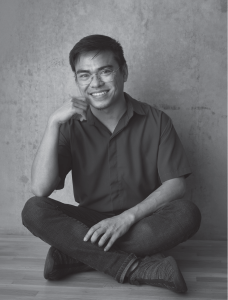 Franz Jared S. Enriquez from Philippines. His project aims to analyze the Philippines’ labour policies and systems using actual case studies of women care workers with multiple forms of oppression and discrimination based on gender, disability, ethnicity, social class, religion, and age. He will dedicate his time in Hamburg to doing a research project – An Analysis of Women Care Workers with Multiple Oppressed Social Identities in Conflict Areas in the Philippines – that will study the effects of intersecting social categories in the labour market. This study can also guide institutions in crafting policies and programs for women care workers that were affected by violent extremisms and will shed light on how they provide equitable distribution of employment access and resources among these vulnerable groups. The study will be vital in guiding decision-makers in their labour policy formulation and implementation strategies so they can provide a more holistic approach to strengthening the healthcare workforce systems. Franz Jared hopes to provide clear recommendations on how women with multiple oppressed identities can achieve a holistic and nurturing work environment through documented individual and group narratives. This project supports SDG Goals 3: good health and well-being, 5: gender equality, 8: decent work and economic growth, and 10: reduced inequalities.
Franz Jared S. Enriquez from Philippines. His project aims to analyze the Philippines’ labour policies and systems using actual case studies of women care workers with multiple forms of oppression and discrimination based on gender, disability, ethnicity, social class, religion, and age. He will dedicate his time in Hamburg to doing a research project – An Analysis of Women Care Workers with Multiple Oppressed Social Identities in Conflict Areas in the Philippines – that will study the effects of intersecting social categories in the labour market. This study can also guide institutions in crafting policies and programs for women care workers that were affected by violent extremisms and will shed light on how they provide equitable distribution of employment access and resources among these vulnerable groups. The study will be vital in guiding decision-makers in their labour policy formulation and implementation strategies so they can provide a more holistic approach to strengthening the healthcare workforce systems. Franz Jared hopes to provide clear recommendations on how women with multiple oppressed identities can achieve a holistic and nurturing work environment through documented individual and group narratives. This project supports SDG Goals 3: good health and well-being, 5: gender equality, 8: decent work and economic growth, and 10: reduced inequalities.
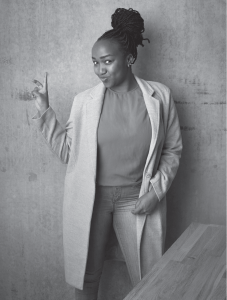 Venus Mungesa Lungaho from Kenya. Venus wants to bring mechanization of waste collection to a container-based toilet system in densely populated urban slums in Kenya. The company she works for, Fresh Life Initiatives, is one of the biggest companies that offer container-based solutions in Africa. Fresh Life toilets are built in deeper slums and congested regions in the cities. The waste collection process is still manual in slums in Kenya. It includes lifting waste containers from toilets, transportation of containers to collection centres and waste consolidation of full containers into larger containers for transportation to the biological reprocessing site. This project entails the design and fabrication of an innovative mechanized system of organic waste collection. Mechanization of the waste collection process reduces labour intensity which creates an equal avenue for employment opportunities for both female and male populations. Moreover, it increases the amount of human waste collected from communities that would otherwise be disposed of along roads and water bodies. Her ISA project will undergo three phases: research of simple, easy-to-use, and human-centred mechanical designs, the building of prototypes, and the piloting and fabrication of devices. The project aims to achieve a safe and effective waste collection delivery model encompassing portable lifting devices, modified pulling carts to manoeuvre rough terrain, and waste consolidation tipper. Her project is an addition to achieving SDG 3 – good health and well-being, and SDG 8 – decent work and economic growth.
Venus Mungesa Lungaho from Kenya. Venus wants to bring mechanization of waste collection to a container-based toilet system in densely populated urban slums in Kenya. The company she works for, Fresh Life Initiatives, is one of the biggest companies that offer container-based solutions in Africa. Fresh Life toilets are built in deeper slums and congested regions in the cities. The waste collection process is still manual in slums in Kenya. It includes lifting waste containers from toilets, transportation of containers to collection centres and waste consolidation of full containers into larger containers for transportation to the biological reprocessing site. This project entails the design and fabrication of an innovative mechanized system of organic waste collection. Mechanization of the waste collection process reduces labour intensity which creates an equal avenue for employment opportunities for both female and male populations. Moreover, it increases the amount of human waste collected from communities that would otherwise be disposed of along roads and water bodies. Her ISA project will undergo three phases: research of simple, easy-to-use, and human-centred mechanical designs, the building of prototypes, and the piloting and fabrication of devices. The project aims to achieve a safe and effective waste collection delivery model encompassing portable lifting devices, modified pulling carts to manoeuvre rough terrain, and waste consolidation tipper. Her project is an addition to achieving SDG 3 – good health and well-being, and SDG 8 – decent work and economic growth.
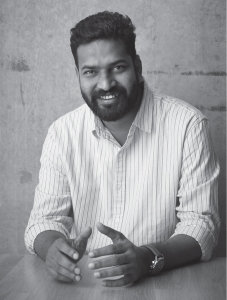 Sanoj Nediyakalayil Thankachen from India. He is passionate about bridging the gap between the privileged and the underprivileged children in India and believes education is the most powerful weapon that can be used to change the world. Child in Rail is a project developed by Xquare Corporation for the welfare of street children living in railway stations through an informal education model. The main objective of the project is to empower and provide education, support, and care (health) to railway children. Through informal education, Sanoj wants to give these vulnerable children quality education while working with his team to understand their problems in order to proffer effective solutions. One of the outcomes of this project is that these children will be empowered with sufficient skills and competencies for the future. The most suitable model of informal education stresses the importance of skill education for railway children. Through that, they will be able to get the skills and competencies that are essential for the job market. Apart from that, Sanoj intends to acquire proper nutritious rich food for them by collaborating with regional-level NGOs for the food sustainability of the child population. For the female children, they will set up reproductive health and counselling units for the orientation and reproductive health needs of these girls. This project will contribute to SDG 1 – no poverty, SDG 3 – good health and well-being, and SDG 4 – quality education.
Sanoj Nediyakalayil Thankachen from India. He is passionate about bridging the gap between the privileged and the underprivileged children in India and believes education is the most powerful weapon that can be used to change the world. Child in Rail is a project developed by Xquare Corporation for the welfare of street children living in railway stations through an informal education model. The main objective of the project is to empower and provide education, support, and care (health) to railway children. Through informal education, Sanoj wants to give these vulnerable children quality education while working with his team to understand their problems in order to proffer effective solutions. One of the outcomes of this project is that these children will be empowered with sufficient skills and competencies for the future. The most suitable model of informal education stresses the importance of skill education for railway children. Through that, they will be able to get the skills and competencies that are essential for the job market. Apart from that, Sanoj intends to acquire proper nutritious rich food for them by collaborating with regional-level NGOs for the food sustainability of the child population. For the female children, they will set up reproductive health and counselling units for the orientation and reproductive health needs of these girls. This project will contribute to SDG 1 – no poverty, SDG 3 – good health and well-being, and SDG 4 – quality education.
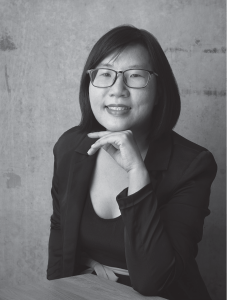 Vo Quoc Thao Nguyen from Vietnam. She is the founder of Greenjoy, a social enterprise, focusing on producing eco materials from natural Lepironia grass to make straws, dinnerware, tableware, and kitchen and home decoration to replace single-use plastic products. They are dedicated to reducing plastic waste/ pollution, improving the livelihoods of local women, raising awareness about plastic waste, and conscious consumption and production. Additionally, they also conduct training on gender inclusion and women empowerment, helping them to get financial independence and make their own decision in the family and the community. Their goal is to reduce 1 billion plastic straws by 2027, create livelihoods and increase income for more than 1000 farmers and local women in the Mekong Delta region, a place highly affected by climate change. During her stay at the ISA program, she plans to create a branch for selling natural and compostable products in Germany and a hub to distribute to European countries. Furthermore, she will launch a crowdfunding campaign to introduce her solution. Finally, she intends to research and develop more on other solutions of grass fibre to make cutlery, cups, and bottles to replace single-use plastic and collaborate with universities, labs, and partners to develop this project. With her project, she will be helping to accomplish the following SDGs: SDG 8 – decent work and economic growth, SDG 12 – responsible consumption and production and SDG 14 – life below water.
Vo Quoc Thao Nguyen from Vietnam. She is the founder of Greenjoy, a social enterprise, focusing on producing eco materials from natural Lepironia grass to make straws, dinnerware, tableware, and kitchen and home decoration to replace single-use plastic products. They are dedicated to reducing plastic waste/ pollution, improving the livelihoods of local women, raising awareness about plastic waste, and conscious consumption and production. Additionally, they also conduct training on gender inclusion and women empowerment, helping them to get financial independence and make their own decision in the family and the community. Their goal is to reduce 1 billion plastic straws by 2027, create livelihoods and increase income for more than 1000 farmers and local women in the Mekong Delta region, a place highly affected by climate change. During her stay at the ISA program, she plans to create a branch for selling natural and compostable products in Germany and a hub to distribute to European countries. Furthermore, she will launch a crowdfunding campaign to introduce her solution. Finally, she intends to research and develop more on other solutions of grass fibre to make cutlery, cups, and bottles to replace single-use plastic and collaborate with universities, labs, and partners to develop this project. With her project, she will be helping to accomplish the following SDGs: SDG 8 – decent work and economic growth, SDG 12 – responsible consumption and production and SDG 14 – life below water.
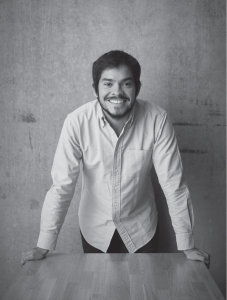 Jorge Andres A. Correa from Colombia. His NGO – El Patio is a neighbourhood Think Tank that facilitates social innovation. During his stay as an ISA fellow, Jorge plans to develop an operational framework for his NGO combining participatory action research, mixed research methods, and tools from startup entrepreneurship to promote cooperation to address urgent socioeconomic issues in the rural area. Additionally, he will be working on two initiatives: the sustainable rural art biennial and the communal marketplace using the NGO’s framework, prioritizing women’s engagement. His idea is to bring collaboration where is most needed. Therefore, he aims to work with the most vulnerable rural communities, especially schools, farmers, and artisans located outside of the urban area of the towns surrounding the city of Neiva. The NGOs´ approach will be based on working closely with the communities and local leaders in the first place, and secondly, to enable solutions by bringing tools, viable technical contributions, and a budgeting structure (this includes organizing valuable tactical information and test budgets). Jorge will be addressing SDG 1 – no poverty, and SDG 8 – decent work and economic growth.
Jorge Andres A. Correa from Colombia. His NGO – El Patio is a neighbourhood Think Tank that facilitates social innovation. During his stay as an ISA fellow, Jorge plans to develop an operational framework for his NGO combining participatory action research, mixed research methods, and tools from startup entrepreneurship to promote cooperation to address urgent socioeconomic issues in the rural area. Additionally, he will be working on two initiatives: the sustainable rural art biennial and the communal marketplace using the NGO’s framework, prioritizing women’s engagement. His idea is to bring collaboration where is most needed. Therefore, he aims to work with the most vulnerable rural communities, especially schools, farmers, and artisans located outside of the urban area of the towns surrounding the city of Neiva. The NGOs´ approach will be based on working closely with the communities and local leaders in the first place, and secondly, to enable solutions by bringing tools, viable technical contributions, and a budgeting structure (this includes organizing valuable tactical information and test budgets). Jorge will be addressing SDG 1 – no poverty, and SDG 8 – decent work and economic growth.
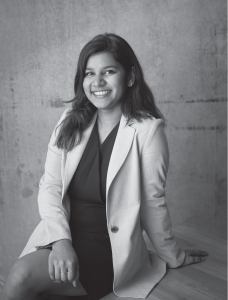 Shivangi Aggarwal from India: Her project aims at revolutionizing waste management practices through community engagement and education. With a clear focus on setting up and operating a plastic waste management unit, this project seeks to address the pressing environmental challenges posed by improper waste disposal. Her project titled ” CleanCycle: Transforming Waste with Community Action and Education” focuses on comprehending the intricate value chain of solid waste management, encompassing both forward and backward linkages. By developing robust standard operating procedures for waste management at household and community levels, the project aims to instil the importance of 4Rs – Reuse, Reduce, Recycle, and Recover principles from the grassroots upward. Through targeted BCC initiatives, the project seeks to raise awareness, instigate positive shifts in waste-handling behaviors, and foster a sense of ownership among community members. The holistic approach aims to empower individuals and workers to become stewards of the environment and catalyze a movement toward sustainability while focusing on SDG 11 – sustainable cities and communities, SDG 12 – responsible consumption and production, and SDG 13 – climate change.
Shivangi Aggarwal from India: Her project aims at revolutionizing waste management practices through community engagement and education. With a clear focus on setting up and operating a plastic waste management unit, this project seeks to address the pressing environmental challenges posed by improper waste disposal. Her project titled ” CleanCycle: Transforming Waste with Community Action and Education” focuses on comprehending the intricate value chain of solid waste management, encompassing both forward and backward linkages. By developing robust standard operating procedures for waste management at household and community levels, the project aims to instil the importance of 4Rs – Reuse, Reduce, Recycle, and Recover principles from the grassroots upward. Through targeted BCC initiatives, the project seeks to raise awareness, instigate positive shifts in waste-handling behaviors, and foster a sense of ownership among community members. The holistic approach aims to empower individuals and workers to become stewards of the environment and catalyze a movement toward sustainability while focusing on SDG 11 – sustainable cities and communities, SDG 12 – responsible consumption and production, and SDG 13 – climate change.
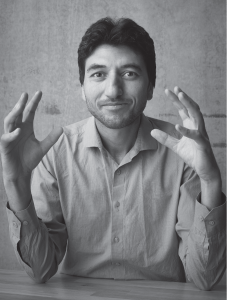 Amjad Ali from Pakistan. Amjad’s project aims to promote sustainable tourism in high mountain destinations in Pakistan with a special focus on gender equality and climate change. The project involves a comprehensive review of existing sustainability issues in the region. By identifying intervention areas, both governmental and non-governmental organizations can work collaboratively with local communities to address these challenges. To gain insights into global best practices, Amjad plans to study sustainable tourism initiatives in tourist destinations across Europe, including Germany. This exposure will provide valuable lessons and knowledge to be applied in the context of Pakistan’s high mountain destinations. A significant aspect of the project is empowering rural women to actively participate in tourism development within their communities. By identifying opportunities for women to engage in tourism-related activities, the project aims to indicate the short-term and long-term benefits for them. Over time, this economic empowerment of women will lead to a positive multiplier effect on the region’s overall economy. Amjad’s project aligns with several Sustainable Development Goals (SDGs), including SDG 8 – Decent Work and economic growth, SDG 12 – Responsible Consumption and Production, SDG 5 – Achieve Gender Equality and Empower All Women and Girls, and SDG 13 – Climate Action. The outcome of the project will be a research paper and policy brief that outlines a sustainable mountain model. These resources will serve as valuable guidelines for policy-makers and tourism managers in Pakistan to promote sustainable practices in high mountain destinations.
Amjad Ali from Pakistan. Amjad’s project aims to promote sustainable tourism in high mountain destinations in Pakistan with a special focus on gender equality and climate change. The project involves a comprehensive review of existing sustainability issues in the region. By identifying intervention areas, both governmental and non-governmental organizations can work collaboratively with local communities to address these challenges. To gain insights into global best practices, Amjad plans to study sustainable tourism initiatives in tourist destinations across Europe, including Germany. This exposure will provide valuable lessons and knowledge to be applied in the context of Pakistan’s high mountain destinations. A significant aspect of the project is empowering rural women to actively participate in tourism development within their communities. By identifying opportunities for women to engage in tourism-related activities, the project aims to indicate the short-term and long-term benefits for them. Over time, this economic empowerment of women will lead to a positive multiplier effect on the region’s overall economy. Amjad’s project aligns with several Sustainable Development Goals (SDGs), including SDG 8 – Decent Work and economic growth, SDG 12 – Responsible Consumption and Production, SDG 5 – Achieve Gender Equality and Empower All Women and Girls, and SDG 13 – Climate Action. The outcome of the project will be a research paper and policy brief that outlines a sustainable mountain model. These resources will serve as valuable guidelines for policy-makers and tourism managers in Pakistan to promote sustainable practices in high mountain destinations.
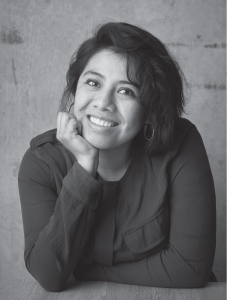 Lucia Toledo from Bolivia. Her ISA project, Sacha Escuela, will support national parks to gain more mindful visitors of all ages by offering recreational outdoor environmental education activities that will awaken their interest, creativity, and understanding of the current challenges and introduce agroforestry concepts as an alternative for food production. She will use Tunari National Park as her study area. Lucia aims to promote environmental education and encourage sustainable food production systems by creating a model outdoor education program in the city of Cochabamba, Bolivia. Her project will also include giving farmers and their families living inside the park the option to implement a highly diverse agroforestry system on their land to start getting the benefits that these practices give (soil restoration, water cycle, climate protection, and habitat biodiversity). She plans to give local communities, rural schools, and institutions nearby a National Park getting access to healthy environmental activities by offering a solid program that can be easily applied in other regions. This project will contribute to achieving SDG 4 – quality education, SDG 15 – life on land, SDG 13 – climate action, and SDG 12 – responsible consumption and production.
Lucia Toledo from Bolivia. Her ISA project, Sacha Escuela, will support national parks to gain more mindful visitors of all ages by offering recreational outdoor environmental education activities that will awaken their interest, creativity, and understanding of the current challenges and introduce agroforestry concepts as an alternative for food production. She will use Tunari National Park as her study area. Lucia aims to promote environmental education and encourage sustainable food production systems by creating a model outdoor education program in the city of Cochabamba, Bolivia. Her project will also include giving farmers and their families living inside the park the option to implement a highly diverse agroforestry system on their land to start getting the benefits that these practices give (soil restoration, water cycle, climate protection, and habitat biodiversity). She plans to give local communities, rural schools, and institutions nearby a National Park getting access to healthy environmental activities by offering a solid program that can be easily applied in other regions. This project will contribute to achieving SDG 4 – quality education, SDG 15 – life on land, SDG 13 – climate action, and SDG 12 – responsible consumption and production.
Please note that the project outlines are preliminary and will be further defined. Participants and their projects will be presented in detail, once they have arrived in Germany in our News Blog.
You would like to cooperate with one or more of the scholarship holders? Then please contact the Project Team.

